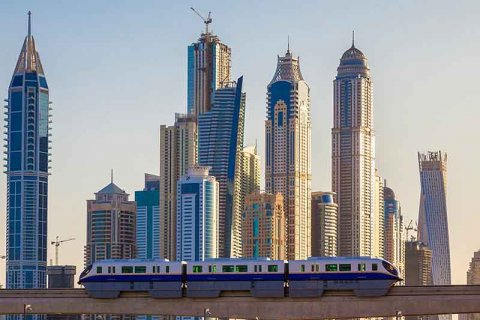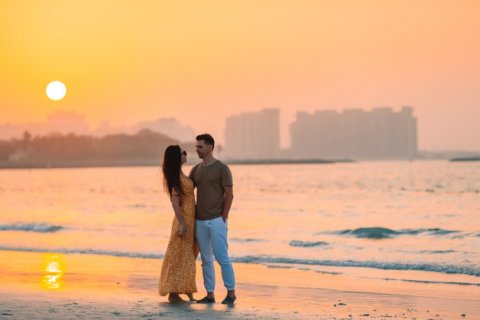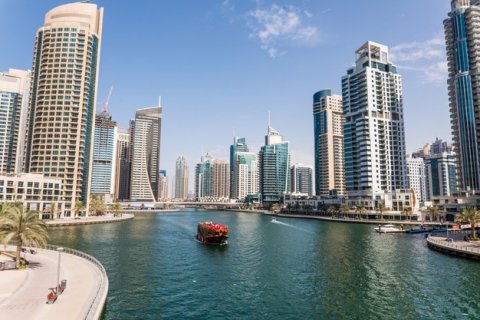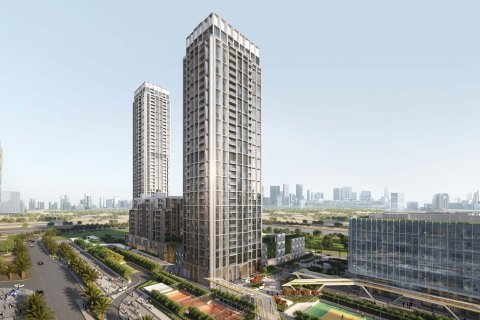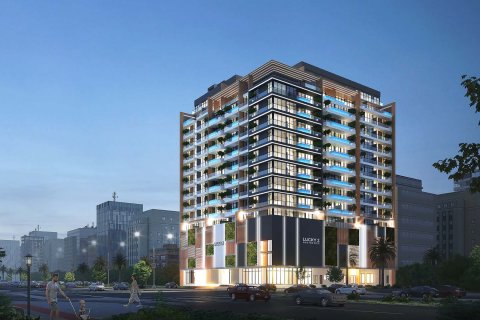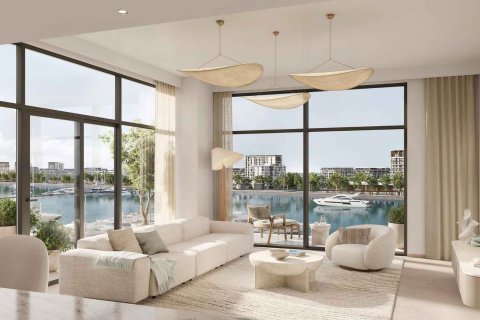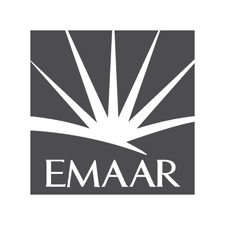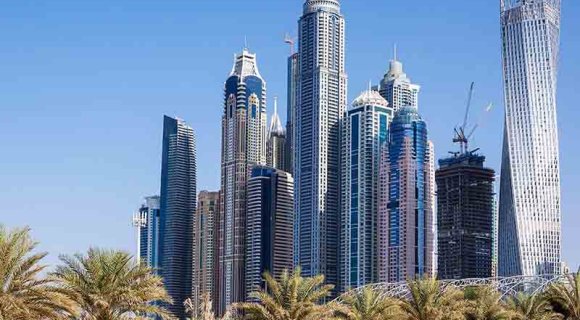
Despite the widespread use of the English language in the UAE, tourists and expatriates should remember the most common Arabic words and phrases that will help them communicate with local residents in various situations.
In this article, we will provide frequently used and simple expressions that will assist you in markets, stores, restaurants, medical clinics, banks, and other establishments.
Content:
- General information about the language
- Key phrases for communication
- Useful phrases for travel
- Restaurant and cafe phrasebook
- Shopping
- Emergencies and medical assistance
- Cultural aspects of communication in the UAE
- Conclusion
General information about the language
Arabic is a language spoken by over 360 million people. It has a classical version in which the Quran is written, as well as various dialects. The dialects can vary significantly from each other, to the point where speakers of different dialects may have difficulty understanding one another.
There is also a separate literary or official modern Arabic language. It is rarely used in spoken conversation but is actively used in television, movies, and the press.

Key features of the Arabic language
- Each letter corresponds to only one sound.
- Considerable attention is given to the combination of sounds, which lends the language a particular musicality.
- In written form, letters are connected to each other, and the script is written from right to left.
- Conciseness in writing is a characteristic feature. Vowels are not written out but are indicated by diacritical marks above or below the letter. There is also a special mark called "shadda," which is placed above a letter to indicate its doubling.
- The majority of words are based on a root of three consonants, with less frequent words having roots of four or more letters. This makes pronunciation easier.
- One word can have multiple meanings, with interpretation depending on the context.
The significance of the Arabic language worldwide
Arabic is one of the official languages of the United Nations General Assembly and is the official language in 23 countries. It ranks sixth in terms of global prevalence. The language has a significant presence in culture, poetry, and songwriting. For many centuries, it served as a means of communication across the region stretching from India to Africa.
The contributions of Arabic-speaking peoples to the development of art, literature, calligraphy, medicine, mathematics, history, and philosophy are outstanding.
As an example, here are a few beautiful Arabic words and their meanings:
- سلام (salaam) – peace. The word is pronounced in the greeting phrase "As-salamu alaykum," which expresses respect and goodwill.
- أم (umm) – mother or a key figure in Muslim culture. The word is added when it is necessary to give a concept special significance. For example, Mecca is referred to as "Umm al-Qura," meaning the mother of cities.
- نور (noor) – light. The word is often used in popular Eastern names that hold religious significance.
Key phrases for communication
Knowing basic Arabic words significantly simplifies interactions with local residents and enhances the level of comfort when staying in the UAE. For instance, when buying or renting property in Dubai, contracts are often written in Arabic as well. Tourists will also find it useful to check out an Arabic phrasebook before their trip. While Dubai is a multicultural city, basic phrases can be helpful in many situations. Below are popular expressions and Arabic words with translation.
Greetings and farewells
The most common Arabic words for greetings and farewells are:
- Hello – "Marhaba";
- Goodbye – "Maasalama";
- See you – "Ila al-liqaa."
A more formal greeting, "Ahlan wa sahlan," translates to "Welcome."
To engage in a small conversation, you can use the following phrases:
- How are you? – "Kif al-Hal?";
- Thank you, I'm good – "Shukran, la bas";
- How is your health? – "Kif al-Saha?";
- Where are you from? – "Min ayn inta?";
- My name is... – "Ana ismi...";
- Nice to meet you – "Tasharraft bima'rifatak";
- I'm from Russia – "Ana min Rusiya";
- Do you speak Russian? – "Ta'rif rusi?";
- Do you know English? – "Ta'rif inglizi?";
- Who speaks Russian? – "Min ya'rif rusi?";
- I don't understand you – "Ma nefhamsh";
- Pleasure to meet you – "Fursa sa'ida."
Polite everyday phrases
Words frequently used in daily life include:
- Thank you – "Shukran";
- Please (when addressing a woman) – "Min fadlik";
- Please (when addressing a man) – "Min fadlak";
- Yes – "Na'am";
- No – "La";
- Excuse me – "Afwan";
- Congratulations – "Mabruk";
- All (enough) – "Khalas";
- When – "Waqtash";
- Where to – "Ila ayn";
- Where – "Wayn";
- Who – "Ashkun";
- What – "Ashwa";
- What time is it – "Kam assaa";
- Morning – "Sabah";
- Evening – "Masaa";
- Night – "Layl";
- Tomorrow – "Ghadwa";
- Today – "Al-yawm";
- Yesterday – "Al-barih."
Useful phrases for travel
If you are travelling to Dubai or another emirate, here are some phrases you may need:
- Airport – "مَطَار" (Maṭār).
- Entrance – "دُخُول" (Dukhūl).
- Registration – "تَسْجِيل" (Tasjīl).
- Exit – "خُرُوج" (Khurūj).
- Airplane – "طَيَّارَة" (Ṭayyārah).
- Ticket – "بِطَاقَة" (Biṭāqah).
- Seat – "مَكَان" (Makān).
- Personal belongings – "أَشْيَاء شَخْصِيَّة" (Ashyā' Shakhṣiyyah).
- Luggage – "أَمْتَعَة" (Amta'ah).
- Excess baggage – "أَمْتَعَة زِيَادَة" (Amta'ah Ziyādah).
- Citizenship – "جِنْسِيَّة" (Jinsīyah).
- Free – "بِلاش" (Bilāsh).
- Additional fee – "دَفْعَة زِيَادَة" (Daf'ah Ziyādah).
- Taxi – "تَاكْسِي" (Tāksī).
- Customs officer – "ديوَانِي" (Dīwānī).
- Bus – "باص" (Bāṣ).
Asking for directions
When navigating the city, you may need the following phrases:
- How can I get to...? – "كيف أنجح لـ..." (Kayf 'anjah lil...).
- City center – "الدَّوْحَة" (Ad-Dawḥah).
- Here – "هُنَا" (Hunā).
- Right – "يَمِينَك" (Yamīnuk).
- Left – "شِمَالَك" (Shimālak).
- Where are you going? – "أَنتَ رَايِح فِين؟" (Anta rāyiḥ fīn?).
- Parking – "مَوْقِف" (Mawqif).
- Please stop here – "يا سَايِق، قِف هُنَا، من فَضْلِك" (Yā sāyiq, qif hunā, min faḍlik).
Hotels and accommodation
The following expressions may be helpful in hotels or guesthouses:
- Hotel – "فُنْدُق" (Funduq).
- Arrival date – "تَارِيخ الوُصُول" (Tārīkh al-Wuṣūl).
- Departure date – "تَارِيخ السَّفَر" (Tārīkh as-Safar).
- I'm in a hurry – "أَنَا مُسْتَعْجِل" (Anā musta'jil).
- Car – "سَيَّارَة" (Sayyārah).
- Suitcase, bag – "حَقِيبَة" (Ḥaqībah).
- Guide – "دَلِيل" (Dalīl).
- Room – "غُرْفَة" (Ghurfah).
- Key – "مِفْتَاح" (Miftāḥ).
- What's the price for a double room? – "كَم سِعْر الغُرْفَة لِشَخْصَيْن؟" (Kam si'r al-ghurfah li-shakhṣayn?).
- I'm staying for 5 nights – "أَنَا هُقَعَد 5 ليالي" (Anā huqa'ad 5 layālī).
Restaurant and cafe phrasebook
Arabic phrases frequently used in restaurants and cafes:
- Waiter – "جَرْسُون" (Jarson).
- A table for two, please – "طَاوِلَة لِشَخْصَيْن، من فَضْلِك" (Ṭāwilah li-shakhṣayn, min faḍlik).
- May I see the menu? – "مُمْكِن أَشُوف القَائِمَة؟" (Mumkin 'ashūf al-qā'imah?).
- Bill – "حِسَاب" (Ḥisāb).
- Tea – "شَاي" (Shāy).
- Coffee – "قَهْوَة" (Qahwah).
- Soup – "شُورْبَة" (Shūrbah).
- Olives – "زَيْتُون" (Zaytūn).
- Beer – "بِيرَة" (Bīrah).
- Salad – "سَلَطَة" (salatah).
- Grilled – "مَشْوِي" (mašwī).
- Boiled – "مَسْلُوق" (maslūq).
- Cheese – "جُبْنَة" (jubnah).
- Fried – "مَقْلِي" (maqlī).
- Vermicelli – "شَعَرِيَّة" (shaʿariyyah).
- Sandwich – "سَنْدْويتْش" (sandwītsh).
- Wine – "نَبِيذ" (nabīdh).
Shopping
In malls, supermarkets, and other shopping spots, the following expressions might come in handy:
- Can I see this? – "ممكن أشوف ده؟" (Mumkin ashuf da?)
- How much does this cost? – "بكم ده؟" (Bikam da?)
- Cash – "فلوس" (fuloos)
- Payment by card – "اندي كارت" (andee kart)
- Money – "النقود" (annookood)
- Change – "فكة" (fakka)
- Good – "كويس" (kuwayis)
Shopping in small shops and markets
When shopping at small stores and markets, it's usually necessary to ask for the items you need. By addressing the shopkeeper in the local dialect, you'll have a better chance of getting a discount.
- Water –" ماء" (maa).
- Sugar – "سكر " (sukkar).
- Salt – "ملح " (maleh).
- Bread –" خبز" (khubz).
- Milk – "حليب " (haleeb).
- Is there fresh fish? – "فما فيش فريش؟ " (Famma hut fresh?).
- Meat –" لحم" (lahm).
- Chicken – "دجاج " (dajaaj).
- Beef –" لحم بقر" (lahm baqar).
- Lamb – "لحم حمل " (lahm haml).
- Potato – "بطاطا " (batata).
- Rice –" رز" (ruz).
- Onion –" بصل" (basal).
- Apples –" تفاح" (tufaah).
- Strawberries –" فراولة " (frawla).
- Grapes –" عنب" (anab).
- Lemon – "ليمون " (limun).
- Oranges – "برتقال " (burtuqaal).
Bargaining and price discussion
- I would like to buy... – "أرغب في شراء..." (Argub fi shira...).
- How much does this cost? – "كم هذا الثمن؟" (Kam hatha ath-thaman?).
- Expensive – "غالي" (Ghali).
When discussing prices, numbers may be needed:
- 1 – "واحد" (Wahid).
- 2 – "اثنان" (Ithnan).
- 3 – "ثلاثة" (Thalatha).
- 4 – "أربعة" (Arba'a).
- 5 – "خمسة" (Khamsa).
- 6 – "ستة" (Sitta).
- 7 – "سبعة" (Sab'a).
- 8 – "ثمانية" (Thamaniya).
- 9 – "تسعة" (Tis'a).
- 10 – "عشرة" (Ashara).
- 20 – "عشرون" (Ishreen).
- 100 – "مئة" (Mi'a).
- 1000 – "ألف" (Alf).
Emergencies and medical assistance
Basic phrases and words for calling emergency services:
- Police – "الشرطة" (Ash-shurta).
- Help – "ساعدني" (Sa'edni).
- I need... – "أحتاج..." (Ahtaj...).
- Hospital – "المستشفى" (Al-mustashfa).
- Ambulance – "إسعاف" (Isaaf).
- Doctor – "الطبيب" (At-ta'bib).
- Pharmacy – "الصيدلية" (As-saydaliya).
Cultural aspects of communication in the UAE
The Emirates is a hospitable Eastern country that strictly observes etiquette rules and has a number of peculiarities. Here, people who can speak eloquently, expressively, and emotionally are highly valued, as well as those who use many Arabic quotes from the Quran in their speech.
During conversations, local residents use active gestures. In business meetings, standard polite phrases are often used, which require standard responses. If you ask a Muslim about their health or family, they will answer very briefly, limiting themselves to general phrases. Discussing the details of private life is not customary here.
In Arabic culture, they are relaxed about time. For this reason, business meetings may start with delays.
Cultural taboos and etiquette
In the UAE, traditional Muslim requirements for foreign tourists and expatriates have been significantly softened. Nevertheless, there are certain Islamic rules in place, violations of which may incur fines.
Let's list the main taboos:
- Prohibition of consuming alcohol in public places.
- Women are advised to wear modest clothing. For foreigners, the rules are more lenient, but the chest, cleavage, and midriff must be covered. Extremely tight and transparent outfits are also undesirable.
- Laughing loudly, shouting, and displaying inappropriate gestures in public places are forbidden.
- During Ramadan (the annual fasting period), it is forbidden to eat and drink in public places during daylight hours.
- Romantic displays of affection in public places by couples are not allowed.
- Taking photographs of strangers without their consent and capturing military facilities, government agencies, and mosques is prohibited.
If you are going to visit for a birthday or a wedding, here are popular Arabic wishes with translation:
- Congratulations! – "مبروك" (Mabruk!)
- A thousand congratulations (for newlyweds) – "ألف مبروك" (Alf Mabruk!)
- Happy birthday! – "عيد ميلاد سعيد" (Id Milad Sa'id!)
- Happy anniversary! – "بالمناسبة السعيدة!" (Bel Munasaba Al-Sa'ida)
- I wish... – "أتمنى... " (Atmanna...)
- Health – "الصحة" (Al-Sihha)
- Happiness – "السعادة" (Al-Sa'ada)
- Love – " حب كثير " (Hob Katir)
- Long life – "طول العمر" (Tul Al-Umr)
- Prosperity – "مستقبل باهر" (Mustaqbal Baher)
Also, don't forget the basic etiquette rules:
- You must remove your outdoor shoes at the entrance.
- Bringing alcohol into the house, even as a gift, is not allowed.
- You can only shake hands with a man.
- Friendly hugs should be avoided.
- Shaking a woman's hand is only acceptable if she initiates it.
- Refusing food at someone's home will be seen as an insult.
- Pass dishes at the table using only your right hand, as the left is considered “unclean.”
- Pointing with a finger is considered impolite; use your whole hand.

Conclusion
Choosing the UAE as a place for your annual vacation or buying an apartment in Dubai for relocation, knowing commonly used Arabic words for beginners would be enough for communication with local residents. To live comfortably in Dubai, speaking English is sufficient.
For those who are considering moving to the UAE, it's worth exploring the current real estate offers. You can do this with the help of our website, which offers a huge selection of properties to suit every taste and budget. Today, an apartment or villa in Dubai is both comfortable housing and an excellent investment opportunity.





































